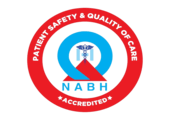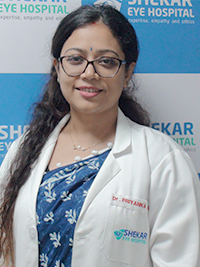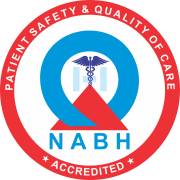We’ve all experienced it at some point – that odd, involuntary spasm of the eyelid that comes out of nowhere. Commonly known as eye twitching, this phenomenon can range from a barely noticeable tremor to a more pronounced and persistent fluttering. But what exactly causes these twitches, and when should they be a cause for concern? In this blog, we’ll delve into the common causes of eye twitching, debunk some myths, and help you understand when it might be time to consult a specialist at Shekar Eye Hospital.
Understanding Eye Twitching:
The medical term for eye twitching is ‘myokymia.’ These twitches are typically harmless and are often related to lifestyle factors. The most common culprits include:
- Stress: In today’s fast-paced world, stress is a common trigger for many health issues, including eye twitches. When stressed, our bodies release certain hormones that can cause a variety of reactions, including muscle spasms.
- Fatigue: Lack of sleep or excessive tiredness can also lead to eye twitching. Ensuring a regular sleep schedule and adequate rest can often alleviate this symptom.
- Eye Strain: In the digital age, where screens dominate our lives, eye strain is increasingly common. Prolonged screen time without breaks can irritate the eyes, leading to twitching.
- Caffeine and Alcohol: Excessive consumption of caffeine or alcohol can also trigger eye twitching. Moderating your intake of these substances can help reduce the frequency of these spasms.
- Nutritional Imbalances: Deficiencies in certain nutrients, such as magnesium, can also lead to muscle spasms, including in the eyelids.
When to Be Concerned:
While most eye twitches are benign and resolve on their own, there are instances when they can be a sign of a more serious condition. You should consult an eye specialist if:
- The Twitch Persists: If your eye twitching lasts for more than a week, it’s worth getting it checked out.
- Severe Twitching: If the twitching is severe enough to close your eyelid completely or if it involves other parts of your face, it’s important to seek medical advice.
- Redness, Swelling, or Discharge: These symptoms, along with twitching, could indicate an eye infection or other conditions that require medical attention.
- Twitching Affects Vision: If the twitching is impacting your ability to see clearly, this is a sign to consult a doctor.
- Neurological Symptoms: In rare cases, persistent eye twitching can be a symptom of a neurological disorder. Accompanying symptoms like facial spasms, difficulty speaking, or muscle weakness warrant a prompt medical evaluation.
Prevention and Management:
While you can’t always prevent eye twitching, certain lifestyle adjustments can help:
- Stress Management: Practice relaxation techniques like yoga, meditation, or deep breathing exercises to manage stress.
- Regular Eye Rest: Follow the 20-20-20 rule – every 20 minutes, look at something 20 feet away for at least 20 seconds to reduce eye strain.
- Healthy Diet: Ensure a balanced diet rich in essential nutrients, particularly magnesium, which plays a role in muscle function.
- Adequate Sleep: Aim for 7-8 hours of quality sleep per night to reduce fatigue-induced twitching.
Conclusion:
In most cases, eye twitching is a temporary, benign condition often caused by lifestyle factors. However, persistent or severe cases, especially those accompanied by other symptoms, should be evaluated by an eye specialist. At Shekar Eye Hospital, our team of experts is dedicated to providing comprehensive care for your eye health. Remember, your eyes are a window to your overall health, and taking care of them is crucial for your wellbeing. If you have concerns about eye twitching or any other eye-related issues, don’t hesitate to reach out to us for guidance and care.








